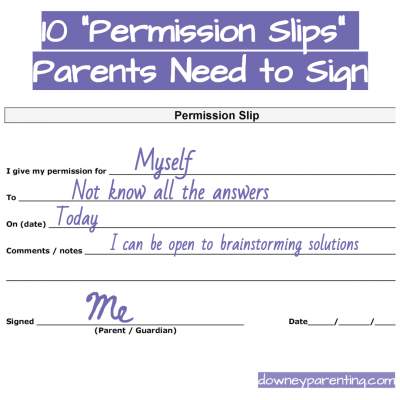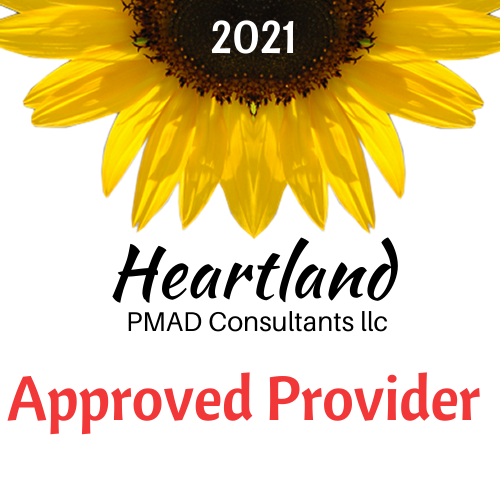
A permission slip is a small piece of paper where someone (usually a parent/caregiver) gives someone else (a kid) permission to do something.
If you have children in school, you are probably familiar with these small slips of paper.
But a permission slip is not just for school. As parents, we need to give ourselves permission too. Brené Brown shares this strategy in her Dare to Lead programs. She focuses on utilizing permission slips to give ourselves the freedom and acceptance to be vulnerable and authentic with ourselves.
And it’s true, as parents we need to give ourselves permission. Below are 10 permission slips that I believe all parents need to write for themselves:
Permission to Share Successes
Some parenting wins are bigger than others, but all parenting wins are just that, wins. Successes. And they all should be celebrated. In “Being at your Best when your kids are at their worst,” Kim John Payne, M.Ed., speaks about a mother struggling with a negative incident with her child where she cussed and then the child started repeating her. Overcome with shame, the mother fixates on this one event and forgets to focus on the hundreds of positive interactions (successes) she has had with her child.
Give yourself permission to talk about the positive things you have done for yourself and for your family.
Permission to give yourself grace: You are a work in Progress
You are going to make mistakes. The goal is to strive for progress, not perfection. Give yourself permission to be imperfect, to do things “good enough.”
Parenting is a skill and skills require practice. Therefore, parenting is about being a work in progress. There is always something new to learn or trying a different approach.
Permission to have a Bad Day
You yelled. Or maybe you gave an empty threat. Whatever misstep that occurred, it was just that, a misstep.
Some days are not great. You may be more irritable, frustrated or overwhelmed. It’s okay to have a bad day. If it seems that the majority of days are bad, I encourage you to seek help with a friend, therapist or parent coach.
Permission to Feel
All feelings are valid and are meant to be felt. Cry. Embrace your frustration or anger. Acknowledge your anxiety or shame.
Permission to have Boundaries
Boundaries are a sign of self-respect. Give yourself permission to set boundaries and limits. Speak up and say no. Remember your values and use them as a guide to set boundaries.
Permission to Not “fix” everything
It’s not your job to solve all the problems. You don’t have to have all the answers, nor should you. Instead, give yourself permission to help your child brainstorm and problem solve together.
Permission to have fun (even better-be silly)
Be the fun parent sometimes. Yes, it’s important we set limits with our children and act as a model for them. But remember the importance of being goofy. Give yourself permission to act silly and have fun.
Permission to Take Time for You
Life is hectic. Make yourself a priority. Add yourself to your own to-do list. Create a daily appointment to do something for yourself.
Permission to Parent your Child Differently
Has someone ever told you “that’s not how we did it?” Possibly your own parents critique your parenting decisions. Or your friends have chosen a different discipline technique than you want to utilize. You are the expert for your family. Give yourself permission to parent your child differently than others.
Permission to Ask for Help
You are not alone on this journey. You can see a therapist or a parent coach easily from the comfort of your home.
Asking for help is a sign of strength, not weakness. As a social species, we are meant to seek help and support from our community. Give yourself permission to seek help from others, especially during these trying times.
What permission slip do you need to sign for yourself?


